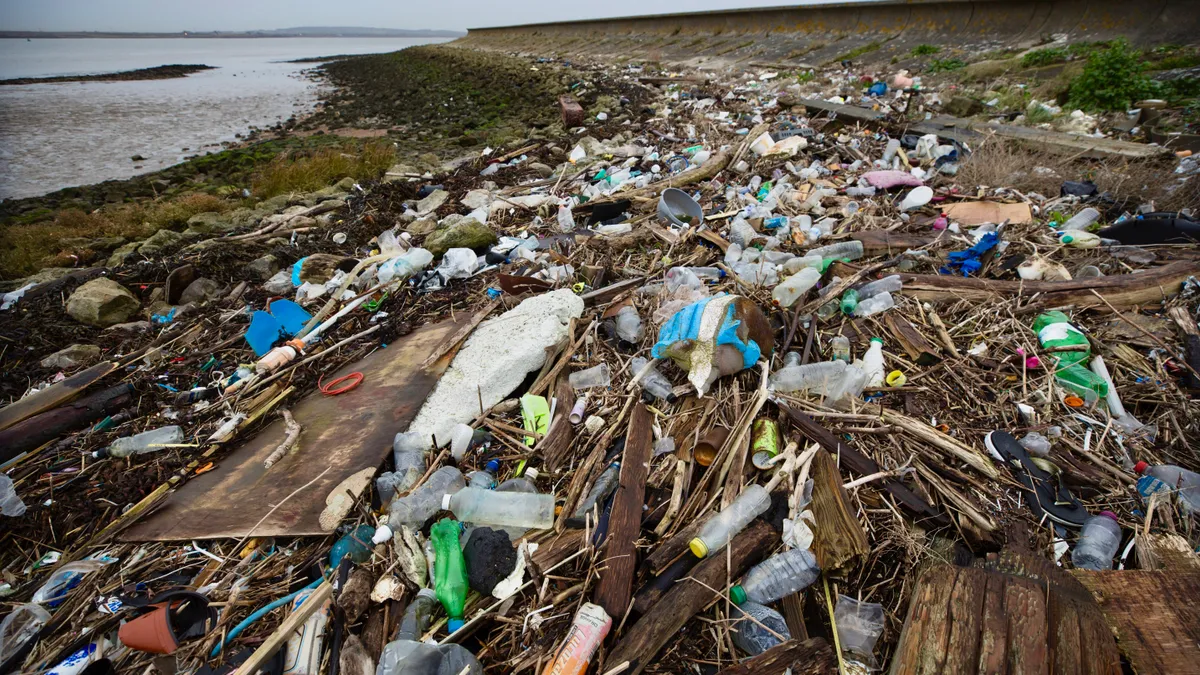The Ocean Conservancy has rescinded a major plastic pollution report it published in 2015, saying some of the information was misleading and unfairly “created a narrative” about who is responsible for cleaning up ocean plastic.
The environmental group’s report, “Stemming the Tide,” coauthored by McKinsey & Company, stated 60% of the world's ocean plastic came from five Asian countries — China, Indonesia, the Philippines, Thailand, and Vietnam. In a July 10 statement, the group said that framing did not accurately discuss the role developed nations, particularly the United States, have had on the ocean plastic pollution issue. It has removed the report from its website.
Understanding has evolved over the last few years about where and how ocean pollution occurs, and several newer studies published since 2020 point to the U.S. as a major source of pollution, in part because of its plastic exports to other countries.
The group also said it was wrong to advocate for incineration and other waste-to-energy technologies as “acceptable solutions to the ocean plastic crisis.” Reducing virgin plastic production and increasing recycling and waste management strategies are more effective ways to prevent such pollution, it said.
In a separate statement emailed to Waste Dive, Nick Mallos, the group’s vice president of ocean plastics, said the organization “regrets not rescinding this report much earlier” because it had received immediate pushback from environmental advocates who worked closely with people living in the Asian countries named in the report. The Global Alliance for Incinerator Alternatives and other NGOs have been vocal about the report’s shortcomings.
Mallos added that the organization’s decision to rescind the report comes as some plastics manufacturers and trade groups are working to advance chemical recycling technologies in the U.S., which he characterized as a “non-circular” approach that prioritizes incineration over plastics reduction.
“Rescinding Stemming the Tide was the best way to unequivocally reject incineration and the false notion that this is not a western or U.S. problem,” he said.
When published, Stemming the Tide received support from the American Chemistry Council, a group that now is active in promoting legislation in numerous states to advance chemical recycling. So far, 20 states have successfully passed such legislation. ACC and some plastics manufacturers see the technology as a necessary method to divert plastic waste from disposal.
The U.S. EPA has not taken a position on the technology, but referenced it as a possible waste diversion strategy in its national recycling strategy released last year. The EPA plans to study whether such operations may disproportionately impact environmental justice communities.
The Stemming the Tide report has been cited numerous times throughout the years. The EPA has mentioned the report during public events, in fact sheets and in reports such as its federal marine litter strategy. Several packaging companies, large brands and trade groups have mentioned the report when discussing sustainability initiatives. Waste Dive also covered the report shortly after it was published and cited it in further coverage.















